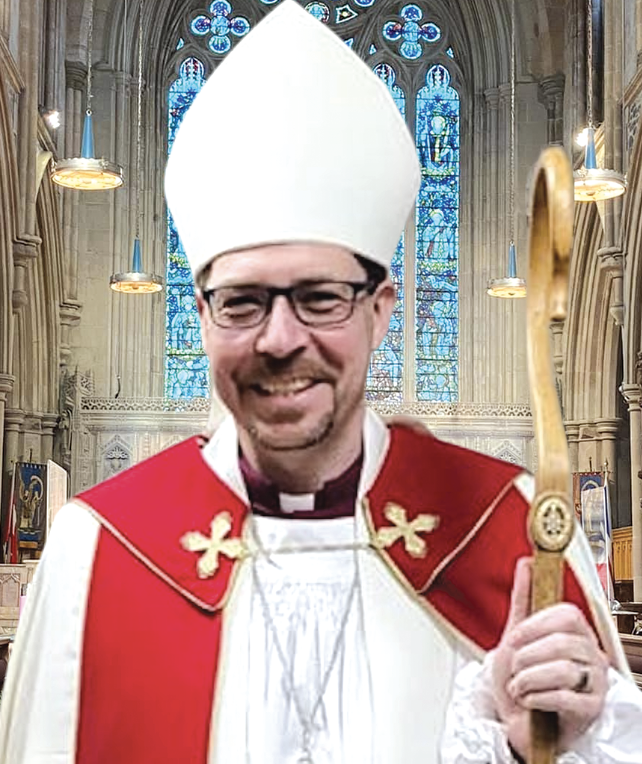Jesus entered the temple courts and drove out all who were buying and selling there. He overturned the tables of the money changers and the benches of those selling doves. ‘It is written,’ he said to them, ‘”My house will be called a house of prayer,” but you are making it “a den of robbers.”’ (Matthew 21:12-17)
In our home, we make it a policy to eat supper together every evening. It’s the only meal we can share as we all have different schedules. But most often, we can find ourselves (all four of us) gathered around the table in our kitchen. The meal is really an excuse to check in with each other and learn about what’s going on in each other’s lives. For us, it is a sacramental moment. For in breaking bread and sharing a meal, we dive deep into our individual lives and see how God works in and through us.
Tables are important. A table is more than a piece of furniture in our homes; it is a gathering place. In our church buildings, there is another Table; it is the Altar—the centre of our Eucharistic Gathering where Jesus shares his Body and Blood—his very life with us.
In Matthew’s Gospel, we hear about tables in a place of worship – the Jewish temple. But these tables are a symbol of not gathering together but of driving apart. And it is Jesus again at the centre.
But it is not the Jesus we are used to seeing. It is an angered and enraged Jesus. A Jesus who doesn’t gather people around a table to share in fellowship but a Jesus who overturns tables, driving out people from the Temple—a Jesus who scatters the crowd.
Why does Jesus do this?
Well, it had to do with what was happening in the Temple. People were coming from all over to worship God in the Temple, and the religious system of the day had people set up at tables in the Temple courtyard to change currency from foreigners for them to buy animals to offer the priests to sacrifice in worship. And this religious system had become corrupt—it had become a means to make money. What should have been a spiritual service had become a materialistic racket.
Jesus sees this and becomes angered. He says, “My house shall be called a house of prayer, but you are making it a den of robbers.” Jesus sees the Temple as the place of religious freedom—where one can freely worship and pray to God. But the tables of the moneychangers and those who sold the sacrificial animals become like a barricade preventing this freedom to worship. Jesus is angered at the exclusivity going on in his Father’s House. It is to be a House of Prayer for all the nations—in other words, for everybody. Instead, it has become a den of thieves.
The Temple courtyard had been cluttered with these tables, which did not allow everyone access to worship God. So, Jesus physically removes these barriers by overturning the tables. This is further shown when Jesus begins to heal those who came to him in the Temple. This would infuriate the religious leaders of the Temple. After all, they did not want those seeking healing because, in their opinion, they were imperfect people. They believed that their disability was a result of their sin, and thus, they were excluded. If the tables of the moneychangers were still in place, these people wouldn’t be allowed in.
But Jesus overturns this way of thinking and believing. He challenges their exclusiveness. He overturns their tables.
The tables we sit at are sometimes precarious places. Our kitchen table is familiar and comfortable in my home with loving faces, and we deeply trust each other as a family. However, how often do we find ourselves at tables that are not so familiar and trusting? How does this make us feel? Do we get squirmish and uncomfortable, especially when difficult topics come up?
Or do we think, like Jesus, that some tables we sit at should be overturned because of their exclusivity and barrier to God?
As many of you have, I’ve sat at many different tables and wished at times that I could leave or even overturn them. These tables are usually the ones where I see injustice and exclusivity being spouted in the name of Christianity. These are tables where the bottom line is how much money we can make from others in the name of our religion or cause. Tables where Jesus is rarely mentioned except for an opening and closing prayer. Have you ever sat at that table?
Or perhaps you have found yourself at an unfamiliar table where people who look and speak differently from you are gathered? A table where the conversation differed from your experience—such as difficult discussions around welcoming those who may not look like us or share our experiences. Have you ever sat at that table?
Or a table that has some empty chairs that were once occupied? A table where there was an argument and those familiar faces either chose not to return. Or a table with chairs where you were not wanted – where you were left out or rejected? Have you ever sat at that table?
How do we choose who we sit at the table with? Do we avoid sitting with the stranger? Do we choose to avoid certain people or conversations? Do we use our tables to exclude either by choice or by ignorance?
Perhaps we need Jesus to overturn those tables again in our churches and lives.
In our world today, there are many places where violence, war and terror are everyday realities. We currently see this in the Holy Land, Ukraine, South Sudan, Syria, Afghanistan and, sadly, others.
It seems it is getting harder and harder to see each other as human beings and more like enemies who are out to destroy one another. There is talk of building walls and turning away strangers and refugees because of fear and mistrust. Instead of removing the barriers that separate us, it seems the world today is more interested in keeping people apart. In times like this, we must look to Jesus, who came to take away all barriers and overturn tables that keep us from truly loving God and loving one another.
One of the graces we use in our home before meals is “Come, Lord Jesus, be our guest, and let these gifts to us be blessed.”
But maybe we should stop asking Jesus to be a guest in our homes and invite Jesus to take permanent residency. Ask Jesus to be a permanent member of our families, lives, churches, and tables we gather around.
My friends, the ultimate removal of a barrier was when God the Father threw away the stone that sealed the Risen Christ from His Creation. Our God is not held back by false barriers, even death. The Resurrection points us towards the generous and gracious inclusivity of God.
We will still find ourselves sitting at various tables, some familiar and loving, others perhaps different and uncomfortable. Wherever God leads us, may we never become a barrier to His Love and Grace. Like overturned tables, we may be symbols of God’s justice and radical welcome for all people through faith and action.


